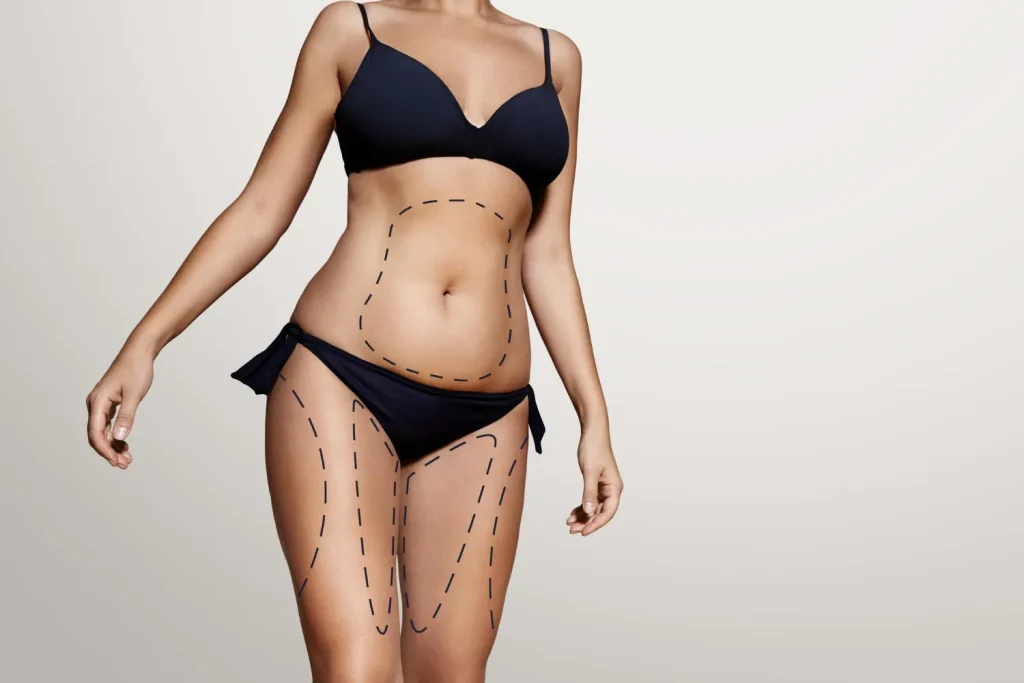1. Liposuction cannot be used as a weight-loss method
One of the most misunderstood things about liposuction is that it is a weight loss procedure. While liposuction can help remove unwanted fat from certain areas of your body, it does not result in major or permanent weight loss. Liposuction should be viewed as an enhancement tool; not as a way to lose significant amounts of weight. Additionally, some patients may mistakenly believe that they can “spot reduce” their problem area by undergoing liposuction. However, liposuction cannot target specific problem areas – it removes small pockets of localized fat with each session and should not be used for spot reduction purposes.
2. Liposuction results are not permanent
Liposuction results are not permanent and depend on the individual’s age, weight and lifestyle. This means that if someone gains a significant amount of weight after liposuction treatment, they may see their results decrease or disappear altogether. Additionally, aging can lead to skin laxity and fat redistribution over time which could also reduce the effects of liposuction. To help maintain long-lasting results from liposuction it is important to follow a healthy diet and exercise plan as well as getting regular checkups with your physician.
3. Bruising and swelling can take several weeks or months to fully subside following liposuction
It is important to follow your surgeon’s instructions to ensure proper healing and recovery. This may include wearing a compression garment, taking prescribed medications, avoiding strenuous activity and refraining from consuming alcohol or smoking while the incisions are still healing. Your doctor will likely monitor your progress throughout the healing process so that he or she can make sure everything is progressing as expected. If you have any questions or concerns about bruising and swelling after liposuction surgery, it is important to discuss them with your surgeon as soon as possible.
4. Not everyone is an eligible candidate for liposuction
The best candidates for liposuction are generally those who have good skin elasticity and a stable weight. People with areas of stubborn fat that don’t respond to diet or exercise, or people with asymmetric body contours due to genetics may also be good candidates. Liposuction is not recommended for individuals who are obese, have poor skin quality, or have medical conditions that can affect healing from surgery.
5. Recovery times vary from person-to-person depending on the amount of lipo needed
Generally, you can expect to be back to your normal activities within 2-3 weeks. During the recovery time, it is important that you follow all instructions given by your doctor. This includes wearing a compression garment, taking medications as prescribed and avoiding strenuous activity until cleared by your surgeon. Additionally, if there are any signs of infection or unusual pain during the recovery process, it is important to contact your doctor immediately.

